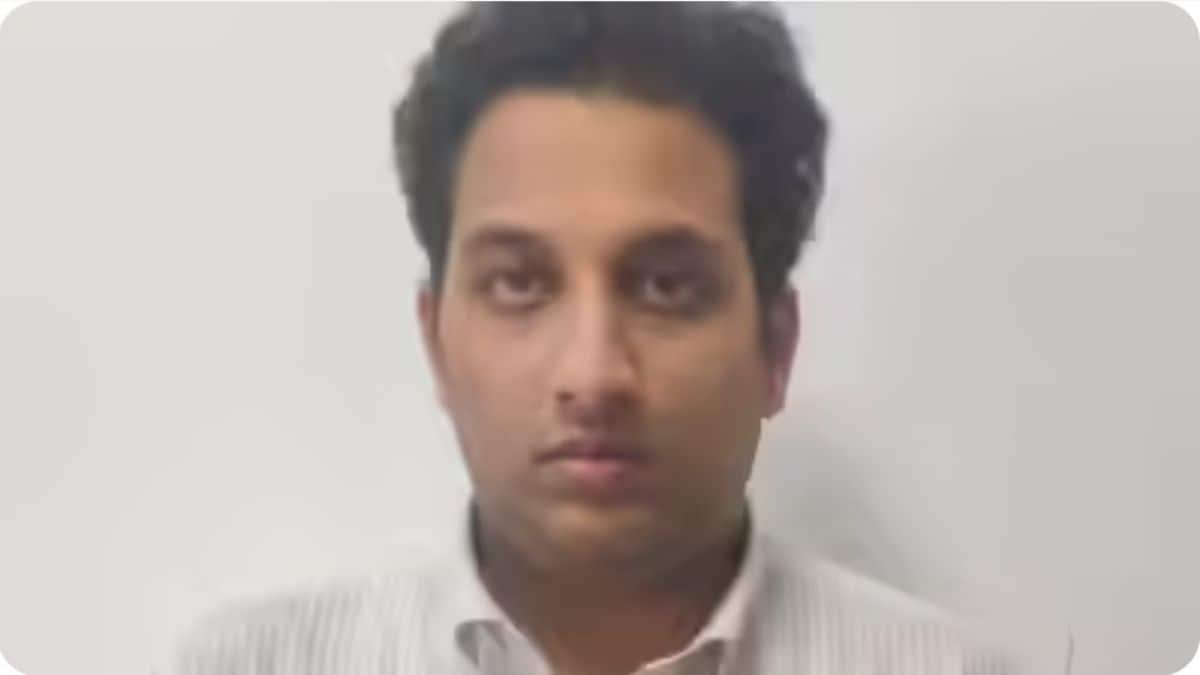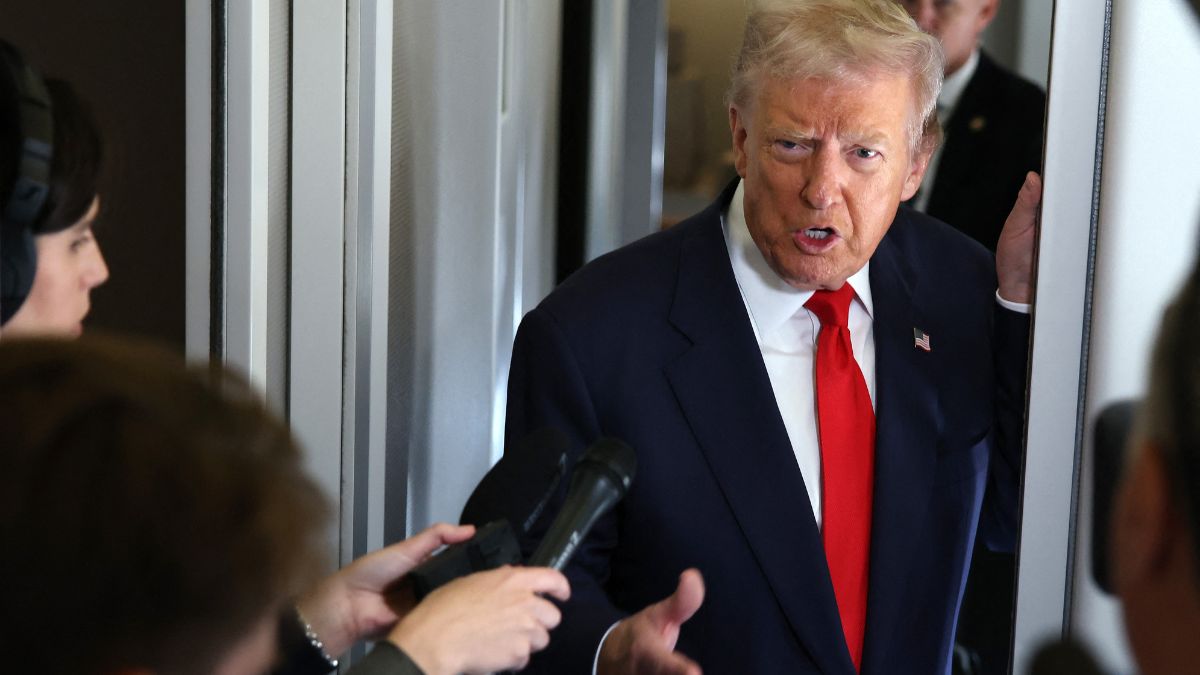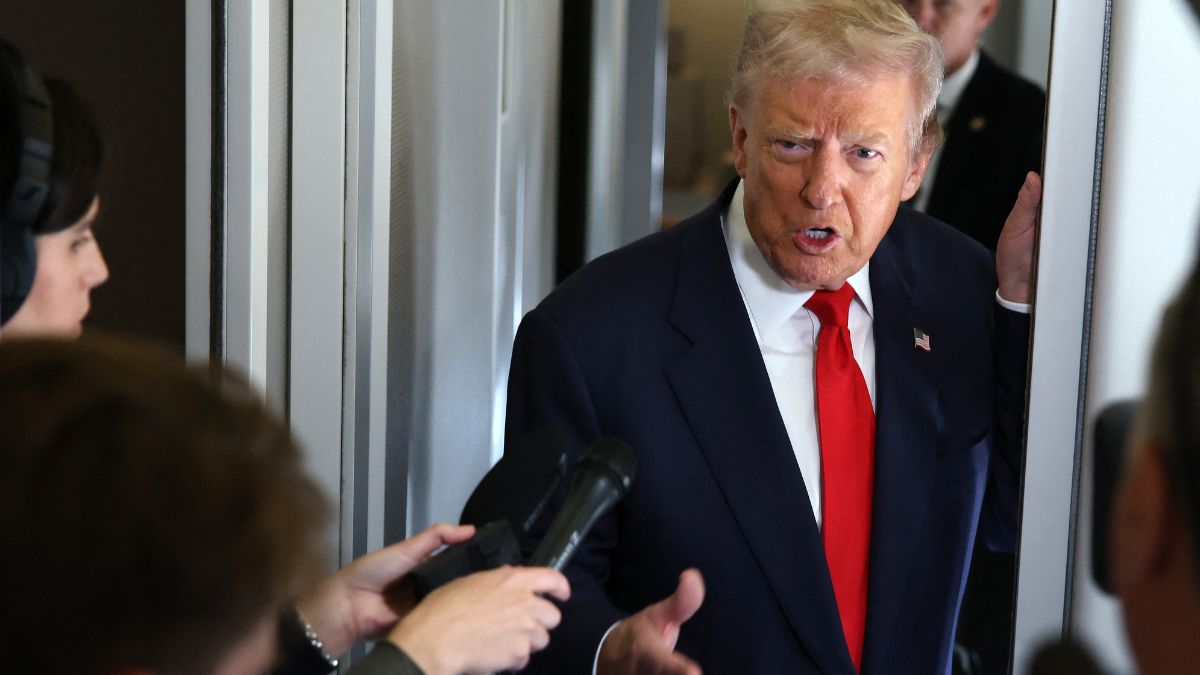A US-based expert has warned that artificial intelligence could push the world towards a bleak future, cutting the global population from the current eight billion to just around 100 million by the year 2300.
Subhash Kak, an Indian-origin computer science professor who teaches at Oklahoma State University, said the main reason would be the high cost of raising children in a world where there are no jobs left for them.
ALSO READ | Two sides of the same coin: How AI’s rise is fueling both optimism and anxiety in India
He also said that major cities such as New York and London could eventually turn into empty ghost towns.
In this explainer, we look at what the expert has said, his warning, and the changes artificial intelligence has already brought to the job market.
Let’s take a look:
‘It’s going to be devastating’: What is the expert’s warning?
Subhash Kak, a computer science professor at Oklahoma State University in Stillwater, has warned that artificial intelligence will become so widespread that Earth’s population could shrink from around eight billion to just 100 million by the year 2300.
Speaking to The Sun, he said, “It’s going to be devastating for society and world society.”
“I think people really don’t have a clue.”
Kak believes that this grim future will not be caused by nuclear war or a “Terminator”-style event, but rather by artificial intelligence taking over most human jobs.
Quick Reads
View All“Computers or robots will never be conscious, but they will be doing literally all that we do because most of what we do in our lives can be replaced,” he said.
“Literally everything, even decision making in offices, will be replaced.”
At present, many technology experts fear that AI is making people obsolete in every field, from law and education to personal relationships.
This, they suggest, will lead to a sharp drop in birth rates, as people might avoid having children who would grow up with no work opportunities, especially with the high cost of raising them.
According to Kak, without new generations being born, the world could face a dramatic decline in population.
“There are demographers who are suggesting that as a consequence, the world population will collapse, and it could go down to as low as just 100 million people on the entire planet Earth in 2300 or 2380,” he warned.
If that happens, Kak said major cities like London and New York could end up abandoned.
“I have all the data in the book. This is not just my personal opinion,” he told The Sun, noting that the decline is already happening.
“People have stopped having babies. Europe, China, Japan, and the most rapid fall in population right now is taking place in Korea,” he added.
“Now, I’m not saying that these trends will continue, but it’s very hard to reverse them because a lot of people have children for a variety of reasons.”
“One is, of course, social. In the back of your mind, you have a sense of what the future is going to be like.”
He also referred to SpaceX chief Elon Musk’s repeated concerns about declining birth rates and his push for space colonisation as a possible solution.
“That’s why Musk is saying maybe humans should go to space, maybe build colonies elsewhere, so that should such a tragedy hit Earth, then it could be reseeded,” Kak told the publication.
While he is not certain whether humans will die out completely, Kak believes one thing is clear: “what is absolutely certain is that there is a population collapse occurring right before our eyes”.
ALSO READ | Saying ‘please’, ‘thank you’ to ChatGPT? How your polite chats are costing OpenAI millions
The advancement of AI
Notably, artificial intelligence has seen a sharp rise in development over the past few years.
Since its launch in 2022, tools like ChatGPT have become widely used by both businesses and individuals.
However, this rapid progress has raised fresh concerns about the future of jobs.
In March, Chancellor Rachel Reeves pointed out that AI is taking over more and more roles. She made the comments while announcing plans to cut civil service posts.
At the same time, the need for AI-related skills is also growing quickly.
According to a survey reported in The Wall Street Journal, nearly 87 per cent of hiring managers are now seeking candidates with AI experience. One in four job ads also mentions AI skills as a key requirement.
Will artificial intelligence replace jobs?
In April, the United Nations Conference on Trade and Development (UNCTAD) said that up to 40 per cent of jobs worldwide could be affected by artificial intelligence.
While some roles might only change, others may disappear completely.
The report also noted that jobs typically held by women may face a higher risk than those usually done by men.
Figures from venture capital firm SignalFire show that entry-level hiring at major tech companies has dropped by over half since 2019.
Previously, new graduates made up about 15 per cent of fresh hires. That figure has now fallen to just 7 per cent, according to TechCrunch.
Meta CEO Mark Zuckerberg recently said AI at his company is already working at the level of a mid-tier software engineer.
“We will get to a point where all the code in our apps and the AI it generates will also be written by AI engineers instead of people engineers,” he said.
This shift is already affecting the job market. IBM, for example, has laid off around 8,000 staff, many from the human resources department. Reports say AI is now doing many of the tasks that people used to handle.
Still, a 2023 report by Goldman Sachs pointed out that while many jobs may be partly taken over by AI, most roles will continue to need some human input. In the past, automation has also led to the creation of new kinds of work.


)

)
)
)
)
)
)
)
)



